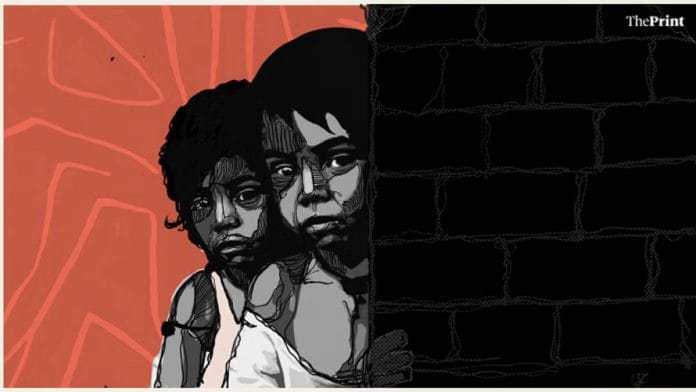New Delhi: The Supreme Court has issued a comprehensive set of guidelines to all state governments and high courts, mandating urgent reforms, speedy trials and stricter enforcement mechanisms to protect vulnerable children across the country, in a key ruling aimed at overhauling the response to child trafficking.
The SC issued the stringent directives Tuesday, reminding authorities of their constitutional obligation to protect children. Its key direction for courts: complete trials in child trafficking cases in six months.
The order came on an appeal filed by the parents of victims of trafficking gangs against bail granted by the Allahabad High Court to three members of one such inter-state ring. The SC bench overturned the HC bail order and ordered all the accused to surrender. It gave the state two months to locate and bring them into custody.
Expressing serious concern over systemic lapses and administrative apathy, the SC came down heavily on the Uttar Pradesh government over its response to child trafficking cases. Along with this, the court issued guidelines for swift trials for related offences.
“Why did the state not deem it fit to challenge the orders of bail passed by the high court? The state unfortunately has exhibited no seriousness worth the name,” the SC bench of Justices J.B. Pardiwala and R. Mahadevan said.
The bench also directed all state governments to study the 2023 human trafficking report prepared by the Bharatiya Institute of Research and Development (BIRD), New Delhi. “… start implementing each of the recommendations by working out appropriate modalities in that regard,” it added.
It also instructed all high courts to gather information on the status of pending child trafficking trials. The bench said that once the necessary data was collected, “a circular thereafter shall be issued on its administrative side to all the trial courts concerned to complete the trials within a period of six months”.
The court described child trafficking as a “gross violation of human rights” and a “direct attack on the dignity of the nation”.
Justice Pardiwala emphasised the need for parents to remain alert and cautious for their children. “The pain and agony a parent faces when a child dies is different from when a child is lost to gangs of trafficking … when the child dies, the child is with the Almighty, but when lost, they are at the mercy of such gangs,” he said.
Overturning HC’s bail order
Expressing dissatisfaction with the Uttar Pradesh government’s handling of the case, Justice Pardiwala said that the bench was “completely let down” by its lack of action.
Commenting on one of the accused, he said: “It seems the man wanted a son and paid Rs four lakh to get one. But wanting a child doesn’t justify acquiring one through trafficking. He was fully aware the baby had been stolen.”
The court has also instructed the Chief Judicial Magistrate and Additional Chief Judicial Magistrate of Varanasi to transfer the child trafficking cases to the court of sessions within two weeks, with directions for framing charges within one week. If any accused has absconded, issue non-bailable warrants, it said.
It also directed the National Commission for Protection of Child Rights to submit a report within four weeks after an independent audit of child protection mechanisms in UP.
Moreover, the judges said: “We direct the state government to appoint three special public prosecutors, well versed in criminal trials, for the purpose of conducting the trials at the earliest. We also direct the state government to provide police protection to the victims and their families pending the trial at the earliest so as to prevent tampering with evidence.”
The state should ensure children rescued from trafficking gangs are admitted to schools, according to the Right of Children to Free and Compulsory Education Act, 2009, the SC said, adding that the state should also continue to support their education.
The judgment emphasised that if a newborn was trafficked from a hospital, the initial action should be to revoke the hospital’s license. “If any lady comes to deliver a child at the hospital and the baby is stolen, the first step is suspension of licence,” the bench said.
The bench added that each high court should submit a report to the Supreme Court regarding compliance of its directions. “Non-compliance of our directions or any laxity of any nature in that regard on the part of any of the authorities shall be viewed very strictly and if need be, they shall be proceeded with for contempt.”
The 95-page judgment mentioned how, according to the National Crime Records Bureau’s data, the conviction rate for human trafficking cases was 42.4 percent in 2017, which dropped to 31.9 percent in 2018 and further declined to 20 percent in 2019.
The BIRD’s primary data shows only a 20.8 percent conviction rate for those prosecuted for human trafficking.
Public prosecutors identified the key reasons for such a low conviction rate—witnesses turning hostile (44.8 percent), lack of strong evidence (20.7 percent), prolonged court proceedings (13.8 percent), improper charge sheets (10.3 percent), and traffickers getting bail easily (10.3 percent). However, the contributing factors varied across states.
(Edited by Nida Fatima Siddiqui)
Also Read: How 2 UP girls got their weddings called off as child marriage bids see rise during pandemic






